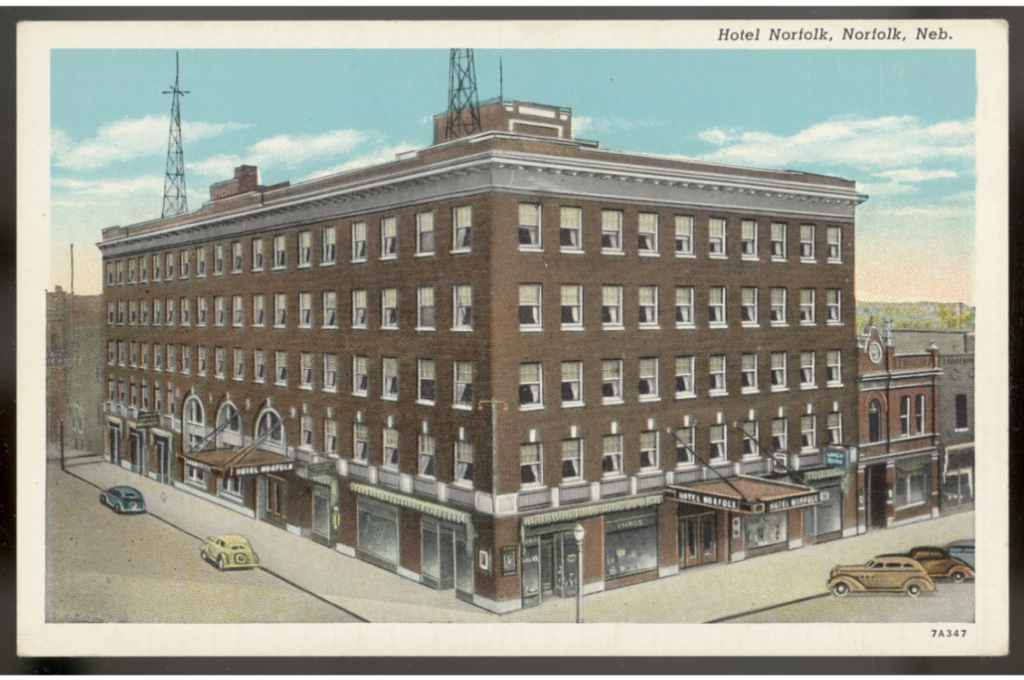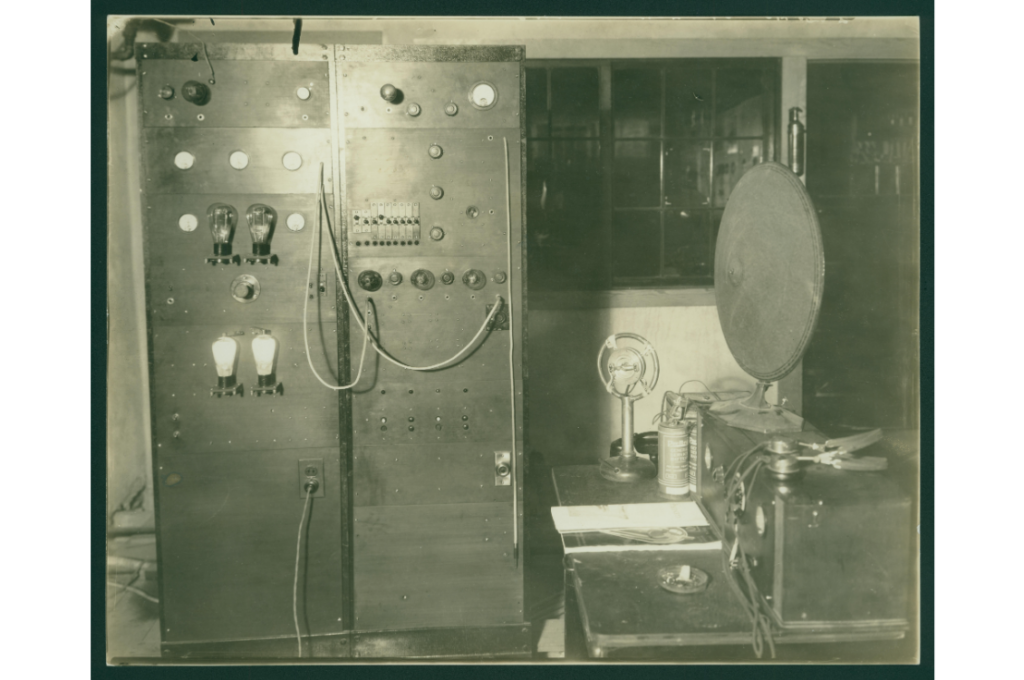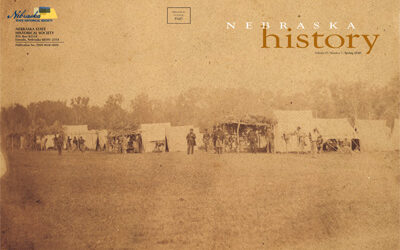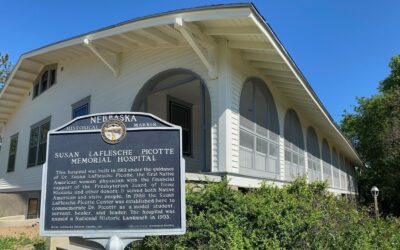Does political talk radio go too far? And does a station have a responsibility to present opposing points of view? In 1946, Norfolk, Neb., radio station WJAG had its broadcast license challenged due to controversial political commentary. The story is told in “The Early Years of Talk Radio: WJAG, Norfolk, Nebraska” by Mark Smith and Larry Walklin. The article is part of the Spring 2011 edition of Nebraska History.

Built in 1926, the Hotel Norfolk was the home of WJAG radio until 1945. NSHS RG 2186-5-76.
(WJAG is also known for launching U.S. Rep. Karl Stefan’s political career, which Mark Smith writes about in his 2000 Nebraska History article, “Karl Stefan, WJAG and the Congressional Campaign of 1934.”)
Call-in talk shows were still in the future, but hosts on WJAG—whose signal reached most of northeast Nebraska—read letters on-air and brought in guests to debate various topics.
Station manager Art Thomas had strong opinions, and he believed that Communist influences were present in northeast Nebraska. He spoke of this repeatedly on his Voice of the People program.

Broadcasting equipment at York, Nebraska radio station KGBZ circa 1930. This is typical of the transmission set up found in many radio stations of that era, including WJAG. NSHS RG 3174-3.
At that time, stations were expected to allow opposing viewpoints, and WJAG’s broadcast license was challenged by people who claimed that Thomas had engaged in personal attacks on the air and had denied his opponents an opportunity to respond.
Thomas denied these allegations. After an investigation by the Federal Communications Commission, WJAG prevailed and was granted a license renewal on April 14, 1947—one day after Thomas suffered a stroke that left him with impaired vision. Thomas’s health declined and he died in 1951.
Modern talk radio is beyond the scope of Smith and Walklin’s article, but their research gives us a look at the expectations of an earlier era. Radio stations were regulated with the belief that the airwaves, being limited, belonged to the public. Even before the FCC adopted the “Fairness Doctrine” in 1949, stations were expected to provide a diversity of views when covering controversial issues.
The FCC abolished the Fairness Doctrine in 1987, saying that it restricted the free speech rights of broadcasters. The issue has continued to be a topic of controversy and proposed legislation in recent years. Smith and Walklin express no opinion on the matter. Instead, they emphasize that “locally produced, pioneer talk on WJAG forged strong but controversial connections with the audience, a strategy that mirrors contemporary radio programming.”
—David Bristow, Associate Director for Research & Publications



